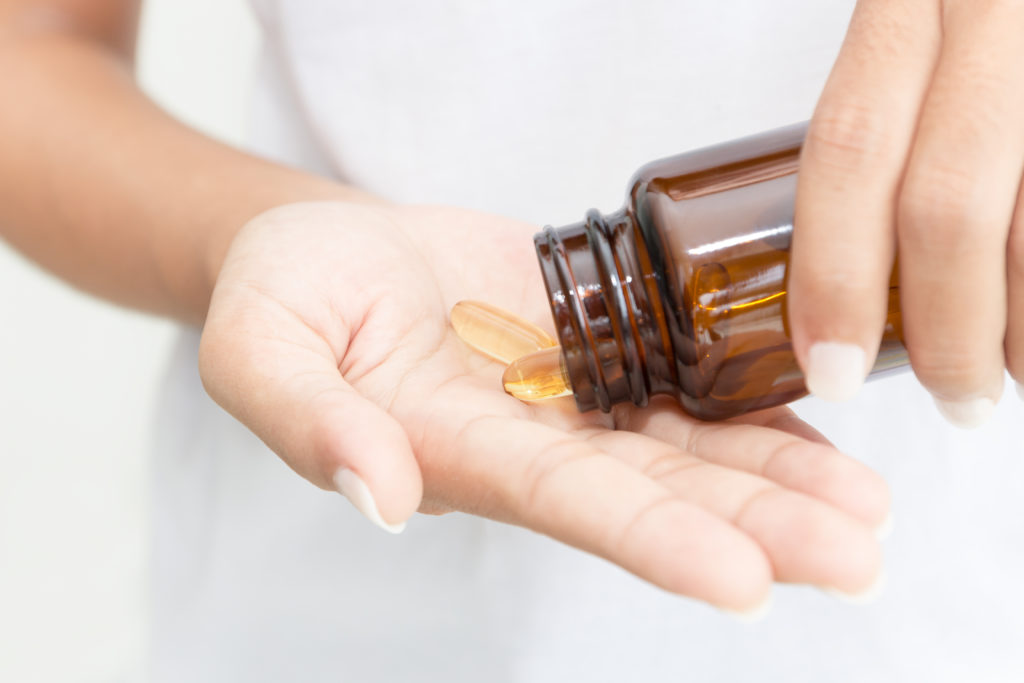Vitamin D protects against death from cancer
According to a new study, the increase in Vitamin D levels through a daily nutritional Supplement seems to cause people have to die a 13 per cent reduced probability of cancer.
In the current investigation, Michigan State University and Hurley Medical Center, it was found that a daily intake of Vitamin D via a dietary Supplement, protects diseases from premature death due to cancer. The results of this study and two other studies on the topic of Vitamin D have been presented at the conference of the American Society of Clinical Oncology in Chicago.

Where does the body of Vitamin D?
Vitamin D is naturally produced by the body in sunlight. Modern living habits have the same result, that most of the people spend a lot more time in buildings and therefore not enough Vitamin D produce. Researchers have found in a study that people with Vitamin D deficiency are diagnosed more than twice as likely to have pancreatic cancer and a higher risk of bowel cancer were. The current study with 79.000 Participants showed that the intake of food supplements with Vitamin D for at least three years was associated with a 13 percent reduced risk of mortality for each form of cancer later in life. Another study on this topic showed that daily intake of a Vitamin D pill along with a Statin to a reduction in deaths from prostate cancer by almost 40 percent.
We food Vitamin should D add?
The research on the topic, reinforce discussions about common foods such as milk or bread Vitamin-D add. A procedure that is applied in the United States, Canada, Sweden, Finland and Australia.
These foods contain a lot of Vitamin D
While Vitamin-D rays are produced actually in the sun no, it can also be obtained by eating liver, eggs, red meat, and plenty of oily fish. But there are millions of people who don’t take enough of these foods, or just in the cloudy winter months is not enough sunshine get.
Vitamin D can be for people with cancer is especially important
The study found that the risk for cancer can be reduced by 13 percent, and analyzed the data from ten studies involving adults with an average age of 68 years. “The difference in mortality rate between the Vitamin D group and the Placebo group was statistically significant enough to show how important Vitamin might be D for cancer prevention in the population,” explains study author Tarek Haykal from Michigan State University in a press release.
Protective effect against death due to prostate cancer was massive
The study by the Madrid University Hospital in Spain, in the 2.280 men took part, showed that those who received standard treatments for prostate cancer and, in addition, Vitamin D and a Statin in revenue, a 38 percent reduced probability had, at an early stage to die, compared with patients neither Vitamin D nor statins.
Should we take in the winter months, Vitamin D?
It would be good if more oncologists and family doctors would think to prescribe to their patients for Vitamin D, since it offers many advantages with only minimal side effects, report the researchers. And to recommend, particularly in countries with less sunlight in the Winter, Supplement with Vitamin D.
Effect of Vitamin D on acids in the body?
The researchers do not know exactly how Vitamin D fights cancer, but some experts, it is believed that it produces an enzyme which detoxifies, so to speak, the natural acids in the body. A reduction in the effectiveness of these acids can help you to damage the internal organs, which in turn reduces the risk of cancer.
Exercise protects against premature death
A number of studies, which were also presented at the conference in Chicago, also found that people who pay attention to sufficient physical activity, can reduce their probability of early death by up to a third. The prescription of step-counters and Fitness trackers in cancer patients this could encourage to move more, and this could improve according to the researchers, the Survival of the patients significantly. (as)
